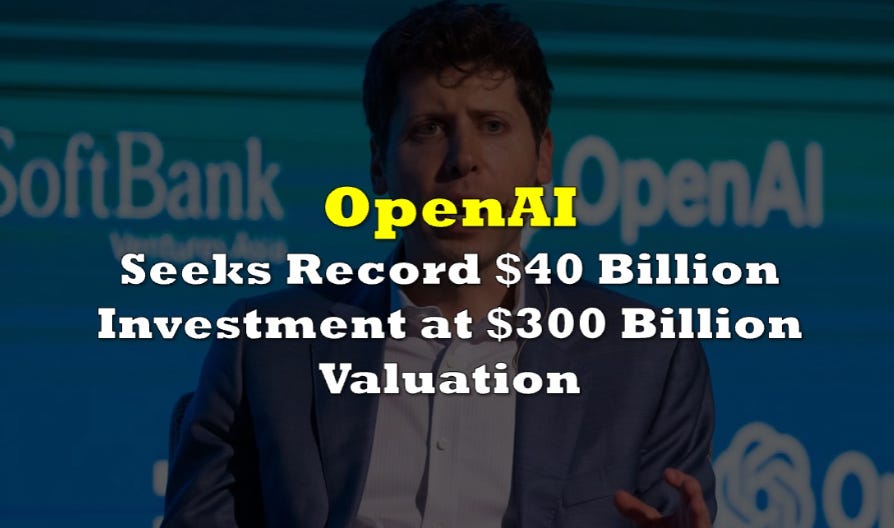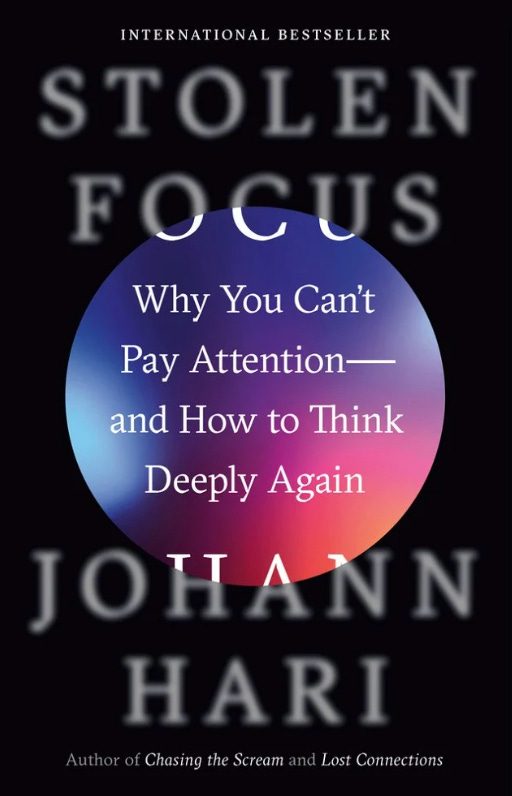- Yaro on AI and Tech Trends
- Posts
- 💰Is OpenAI worth $300B+?
💰Is OpenAI worth $300B+?
Plus: The Pentagon’s Push for Faster Decisions Amid Ethical Debate.
Get in Front of 50k Tech Leaders: Grow With Us
The Pentagon’s Push for Faster Decisions Amid Ethical Debate.
Is OpenAI worth ~$300B?
Google Quietly Launches Gemini 2.0 Pro Experimental.
🧰 AI Tools
📰 News and Trends.
Your daily AI dose
Mindstream is your one-stop shop for all things AI.
How good are we? Well, we become only the second ever newsletter (after the Hustle) to be acquired by HubSpot. Our small team of writers works hard to put out the most enjoyable and informative newsletter on AI around.
It’s completely free, and you’ll get a bunch of free AI resources when you subscribe.
Is OpenAI worth $300B?

OpenAI is in early talks to raise up to $40 billion, potentially valuing the company at $300 billion. SoftBank would lead the round with an investment of $15-$25 billion, with the rest coming from other investors.
The funding will support OpenAI’s operations and its $18 billion commitment to Stargate, a U.S. data center venture. If successful, the round would make OpenAI the second-most valuable startup globally, behind SpaceX. The talks highlight deepening ties between OpenAI CEO Sam Altman and SoftBank’s Masayoshi Son. Such valuations are highly speculative, relying on future performance, market conditions, and competitive dynamics. The rise of DeepSeek, which shook markets by demonstrating it could train and deploy AI models at just 3% of OpenAI's cost, has raised critical questions. Do data centers need to be reimagined? How sustainable are current energy demands? And what is the true present and future value of these AI giants? Companies like Google, with their vast infrastructure, user data, and established platforms, can deploy powerful AI models seamlessly and at scale, posing a significant threat. In this rapidly shifting landscape, OpenAI may face challenges in maintaining its dominance and adapting to new realities.
Our Partners:
RemoteBase - Hire the top 1% of tech talent in the world. We have a thorough multi-step vetting process, that gives you a strong internal community of Front-End, Back-End, Full-Stack, and Dev-Ops engineers. Our clients are matched with the required engineering teams within 24 hours.
OpenVC University - Jumpstart your AI career in 100 days with OpenCV University’s AI Challenge – master AI, Computer Vision, and Deep Learning with a 35% discount!
FRENZ Brainband by Earable - Silence your thoughts and drift into a deeper sleep. —AI-powered, scientifically-backed sleep tech transforming restless nights into restful slumber. Exclusive savings with code 'celis'!*
Google Quietly Launches Gemini 2.0 Pro Experimental.

At the end DeepSeek became a wake up call for all the other major AI companies. You can rest and hold developments for too long, this flat world moves faster that we may think. Google quietly launched its new flagship AI model, Gemini 2.0 Pro Experimental, through a changelog for its Gemini chatbot app. As the successor to Gemini 1.5 Pro, it offers improved accuracy and performance for coding and math tasks and is available to Gemini Advanced users under Google’s AI Premium plan. Currently in early preview, the model may display unexpected behavior and lacks real-time information access. Google emphasized the importance of user feedback for future improvements. The release comes as the tech world focuses on Chinese AI firm DeepSeek.
The Pentagon’s Push for Faster Decisions Amid Ethical Debate.

The Pentagon is using AI to speed up its "kill chain" by improving threat identification, planning, and decision-making while ensuring human oversight in critical decisions. Companies like OpenAI, Anthropic, and Meta have recently allowed limited military use of their AI tools, though they prohibit AI systems from directly causing harm. Major collaborations with defense contractors have formed, raising debates about AI's role in military applications. The Pentagon maintains that humans will always be involved in decisions involving force, rejecting fully autonomous weapon systems. The tech industry remains divided on the ethical implications of AI in defense.
📰 AI News and Trends
The US Copyright Office says AI-assisted art can be copyrighted. But works wholly created by AI can’t be (AP)
Figure AI details plan to improve humanoid robot safety in the workplace (TC)
Western governments are scrutinizing Chinese AI firm DeepSeek over privacy and illegal chip use concerns. Italy blocked its app, and the US is investigating chip smuggling. The model rivals top US AIs with minimal resources (Reuters)
OpenAI partnered with U.S. National Laboratories to deploy its AI models for research, cybersecurity, and nuclear weapons security. The collaboration includes Microsoft’s support on the Venado supercomputer and the launch of ChatGPT Gov for secure government use. (CNBC)
🌐 Other Tech news
Mark Zuckerberg is unfazed by DeepSeek and committs to massive AI investments and focus on model development and computational resources (TC)
Waymo to Expand Self-Driving Testing Across More U.S. Cities. Las Vegas, Miami and San Diego are on the list (WSJ)
Silicon Valley Workers Push Back Against Tech’s Rightward Shift (NYT)
The X Everything App will launch this year, aiming to compete with Apple Pay (9to5)
And Amazon and Apple may return to advertising on X after withdrawing in 2023 over moderation concerns. Their shift, driven by Elon Musk’s influence in Trump’s circle, could help revive X’s stagnant growth (WSJ)
Apple’s iPhone revenue dropped 0.8% in the December quarter, driven by weakness in China due to competition from brands like Huawei. However, strong growth in Macs, iPads, and services boosted overall revenue by 4% to $124.3 billion, with net income up 7% to $36.3 billion. China revenue fell 11%, accelerating from an 8% decline in 2024, as Huawei and Xiaomi gained market share (TC)
Social shopping platforms like Whatnot and ShopMy are benefiting from the TikTok drama. (BI)
🧰 AI Tools
Download our list of 750+ Tools free here.
📖Book for the Weekend.

In Stolen Focus, Johann Hari reveals that the attention crisis is driven by external forces exploiting our focus for profit. Through global expert interviews, he uncovers 12 key causes and offers solutions to help individuals and society regain control.


Reply